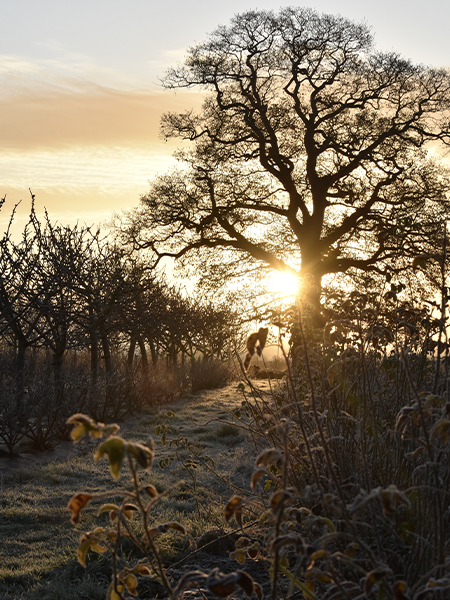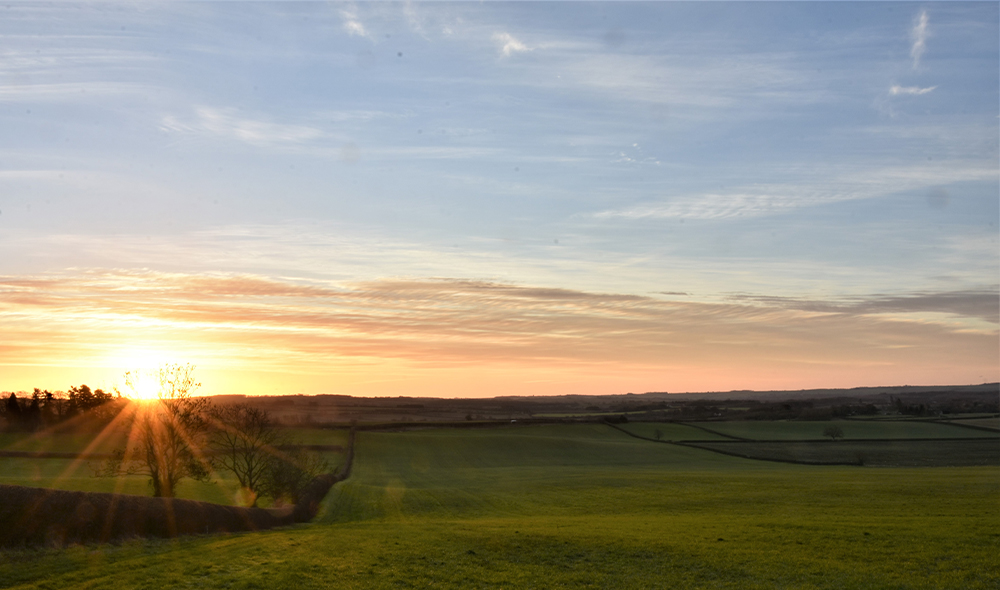
many scientists warn that 2021 will be pivotal in the course of the climate crisis and although we still have far to go, there are reasons to feel hopeful
STORIES · 13.01.21
Mindful Living | Sustainability
Over the course of last year, we witnessed an enormous shift in the way we live many aspects of our lives. A year ago, it would have been hard to imagine the world slowing to this pace; being distanced from family and friends; and to our values, ambitions and expectations taking on new meaning and direction. I know that we will emerge from our experience of this pandemic with a renewed vision for our future and I feel hopeful that many of these new values – the importance of community and the need to act in the interest of the collective good rather than individual gain – will remain and impact our decisions as we move forward. As somebody who has fought so long to help drive change in the collective behaviour towards our planet, I feel that this year could prove vital. Many scientists warn that 2021 will be pivotal in the course of the climate crisis. And although we still have far to go, there are reasons to feel hopeful.
Increasingly, countries are making commitments to fight the climate crisis. In September last year, at the UN General Assembly, the Chinese President, Xi Jinping, announced that China aimed to go carbon neutral by 2060. As the world’s largest contributor to carbon emissions, it was a very positive sign of global action. In November, world leaders will be gathering in Glasgow for the next UN Climate Change Conference. This will be a key opportunity for discussion and will provide a new platform for environmental collaboration.
At the end of last year the total investments in greener, renewable energy sources exceeded the investments in fossil fuels for the first time ever. I am so proud that my son’s company, Ryse, is one of the companies leading the way. Ryse Hydrogen is building the UK’s first network of green hydrogen production plants in order to produce affordable hydrogen fuel and create new green jobs. Mounting public pressure means that businesses and investors can no longer afford to ignore climate concerns and are making greener choices.
Many species were brought back from extinction in 2020. In the UK, beavers were returned to the wild. Beavers became almost completely extinct in this country due to centuries of overhunting. But after government trials, there are now several beaver communities in the UK. Beavers are important architects in maintaining the countryside; natural engineers known for building dams that help prevent rivers from flooding. In other parts of the world, there are also species that are beginning to thrive again. There were more sightings of Blue Whales off the coast of Georgia last year than there has been in over a hundred years.

mounting public pressure means that businesses and investors can no longer afford to ignore climate concerns and are making greener choices
I was so pleased to see how much our farmers were championed in 2020, more so than in many years. It was these local networks and producers that ensured we were all fed, especially as we entered lockdown and the path ahead was unclear. Local farmers are the custodians of our countryside and I am hopeful that the pandemic has intensified the arguments for farming in a way that is regenerative and organic. These practices are safer for us all. They benefit the soil, biodiversity and our wildlife and allow us to sustain our food sources for the future.
Perhaps most importantly, we saw last year how every person, business and country had to react to the virus, shifting ways of working and being. This shows us that it is possible to adapt and change the way we do things and will be pivotal in driving the change to discard the habits that contribute to the climate crisis. The climate crisis is a shared problem – it affects us all. But in a sense, that can be an empowering thought. The power lies in all our hands. Every little change we each make brings us one step closer to saving the planet.
